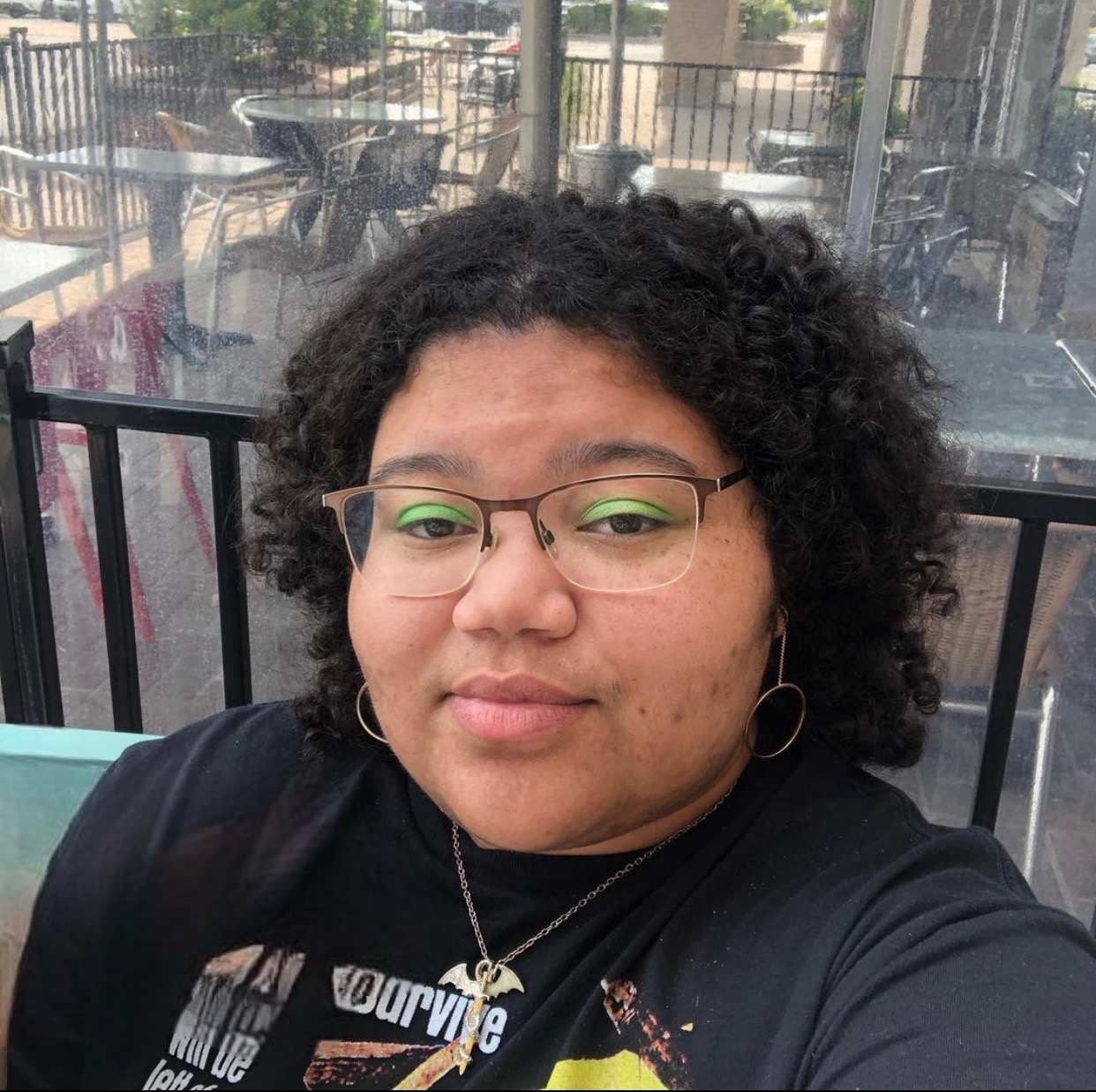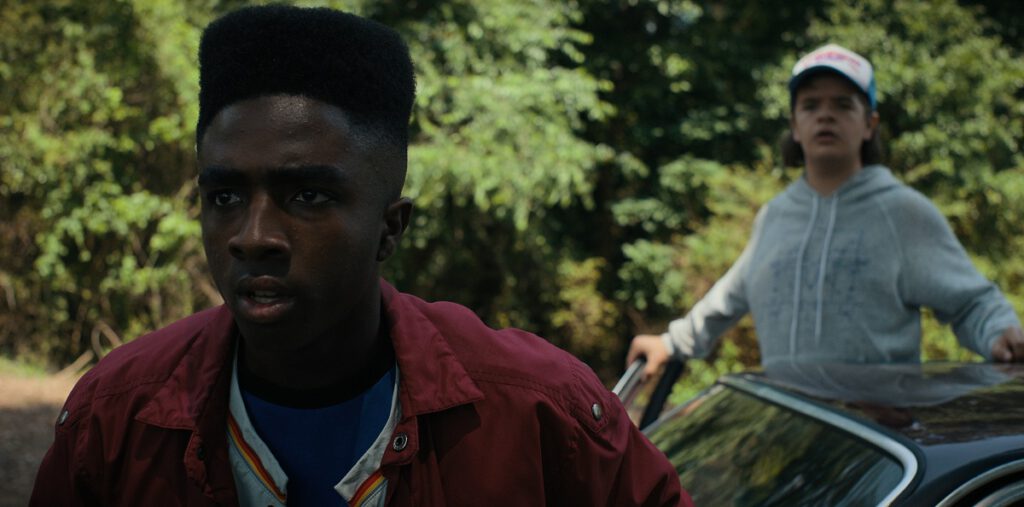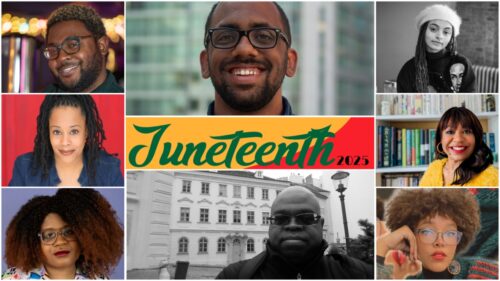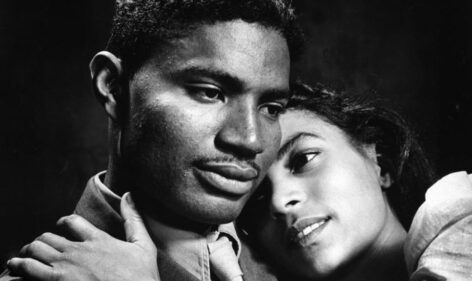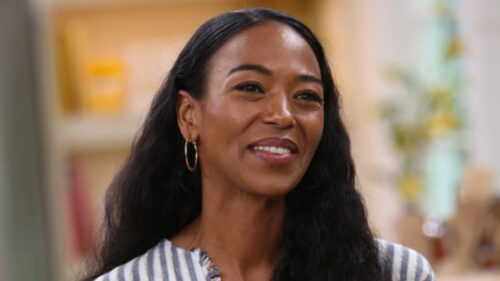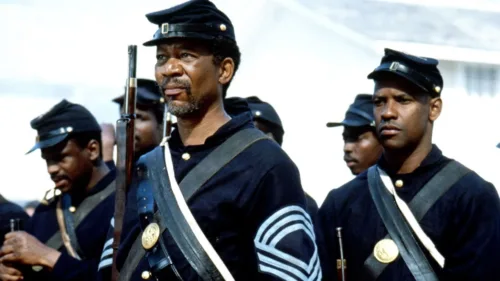When “Stranger Things” first aired in 2016, it was my first year of University. My new friends and I gathered around a single MacBook to watch the show. Lucas, the show’s singular Black character, quickly became my favorite. His wit and sensitivity immediately made him the most realistic character of the season. Plagued by the fear of his missing friend Will, Lucas was the only core character who found the show’s main female character Eleven, untrustworthy.
“I don’t like him,” a friend bemoaned, “He’s mean.” Since then, I’ve watched the show with plenty more friends and time and time again, Lucas’ attitude towards Eleven is scolded in the same way, but because he is cautious and obviously grieving, does that make him a bad person? He quickly becomes the most valuable of the group next to the superpowered Eleven, figuring out things that piece Season One’s puzzle together, and even attacking the Demogorgan with his trusty slingshot. But despite his integral nature to the show’s storyline, Lucas still doesn’t get the appreciation he deserves, not from millions of “Stranger Things” fans, and certainly not from the show’s writers.
“Stranger Things” has become a phenomenon during its six-year run, beating out shows like “Squid Game” as Netflix’s top series, and it’s rightfully earned that spot. Season One came out at the perfect time, amidst an ‘80s nostalgia revival also propelled by films such as the “It” reboot and the now canceled “Glow,” offering adults and Gen Z alike a glimpse back into the past. Despite the show’s creativity, it has failed its Black characters and its Black viewers time and time again.

As the show has moved forward, and with the Volume One premiere of Season Four, it’s clear after six years that the Duffer Brothers still don’t know what to do with Lucas. In Season Three, this was apparent, but in the most recent series it’s abhorrent. Immediately, Lucas becomes a foil for his friend’s Mike and Dustin, prioritizing his new basketball career rather than playing Dungeons & Dragons with his friends. It’s not that he’s lost interest in his companions, it’s that he wants to be popular. “I’m tired of being a loser,” he states, and Mike and Dustin look on at him with mild loathing. Because, of course, it would be unacceptable that a Black person was tired of being bullied, called “Midnight,” and physically assaulted by racists like his girlfriend Max’s older brother, Billy.
They don’t show up to his basketball game, and instead bring along Lucas’ sister, Erica, to replace him for their campaign. In swapping out their friend for his sister, we are given a glimpse into the world of Erica, but still, it’s not enough. Erica joined “Stranger Things” in Season Two, to my surprise, as it wasn’t previously known that Lucas had a sister. Her first scene back in 2017 shows her listening in on Lucas’ private walkie-talkie conversation as the two of them share snarky words and nothing more. This is how Erica’s character remains, years later. Other than a brief stint helping Steve, Dustin, and Robin evade Russian forces in Season Three, Erica always appears briefly, and not without some witty comeback.
She is fun to watch at times, and that’s all to do with Priah Ferguson’s charisma, but the jokes become old as time goes on. Who is Erica, really, and what is her purpose in this story? Is she a stand-in for her brother’s friends? Is she only valuable as a helping hand when the older crew needs her help (but still manages to keep her out of the loop)? There’s a strange sense of nationalism with Erica’s character as well, with a proud declaration of “You can’t spell America without Erica!” being one of her defining lines in Season Three. In Season Four, she struts down the school hallway proudly, donning an American flag around her shoulders, trailing behind her like a cape, or a beacon of hope. “Stranger Things” and its nationalism in the wake of Hawkins being invaded by Russian forces isn’t necessarily new, but having your sole Black female character’s entire personality built around the love of America is tone deaf at the best of times, but especially today.

Coinciding with this nationalist heroism they’ve accosted Erica with, the Duffer Brothers have also upped the ante with a slew of Black cops. One of the only other Black characters with speaking lines throughout “Stranger Things” is Officer Calvin Powell, who has since been promoted to chief since Jim Hopper’s death. Alongside him is an unnamed police officer who interrogates Nancy’s friend Fred (although it’s revealed to be a charade caused by Vecna), and Agent Wallace, an officer working with Dr. Owens, who is stationed to watch the California crew while Eleven learns how to use her powers again.
After Wallace gets shot in episode four, his white partner Agent Harmon gets to play the hero in a fast-paced sequence showcasing his skills. The camera stays on him in a glorious one-shot take, as he takes out government reinforcements, protecting Eleven’s friends. Afterwards, it’s revealed that Agent Wallace is alive, but he is quickly picked up by Lt. Colonel Jack Sullivan (who also happens to be Black, because nationalism!) and tortured for the rest of his screen time. Season Four, Volume One has been praised for its horror themes and its willingness to go “dark,” but these aspects of darkness are weaponized against the Black people in this series. Agent Wallace’s torture isn’t offscreen, but showcased vividly in front of our eyes: every cry is heard, every punch is felt, and every scream reverberates through your speakers.
The call for inclusion in “Stranger Things” has surrounded social media for years, which seems to be the norm now for popular shows and franchises. It’s not just Netflix, but everything from the Star Wars fandom to lovers of the MCU, pleading with creators and writers to let people who look like them exist in these universes. Creators don’t always listen, or it takes them years to do so. And sometimes when they do allow diversity, another end of the fandom tears these new actors down with hate. But the Duffer Brothers have finally allowed Black people like Agent Wallace and Colonel Jack Sullivan to exist in the “Stranger Things” universe. And who could forget about Patrick, one of Lucas’ new friends and basketball teammates.

In what feels like a scramble to add diversity after years of pleading from fans, the Duffer Brothers and their team have shown just how out of touch they are in regards to race. The first new prominent Black character in Season Four is Patrick, one of Lucas’ teammates. We know nothing about him, up until the show’s new villain Vecna picks him as his latest victim. To become susceptible to Vecna’s curse, characters must be overcome by feelings of guilt, or burdened by trauma. We learn, albeit briefly, that Patrick makes the perfect victim, because he’s being abused at home.
This is the only thing we learn about Patrick until his untimely demise, and maybe it’s because he’s not a central character, but, the previous two victims of Vecna’s curse, Chrissy and Fred, are given a life before they die. Chrissy is a new fan favorite (akin to Shannon Purser’s Barb of Season One), charming audiences with her bright smile and bubbly joy, whereas Fred is given more lines than Chrissy and Patrick combined in just the first two episodes. We know things about these two, we know they are kind before we know they’re traumatized, and probably going to die. But why isn’t Patrick handled with as much grace?
When his time finally comes, Patrick is propelled into the air, possessed by Vecna’s supernatural powers. We see, under the guise of the moonlit night, his bones crushed and jaw wrenched open, until he is dead. It’s fitting that you can barely see him when this happens, his body covered in a darkness that gleams off the water of the lake he’s in, shadowed because the camera crew still, after four seasons, does not know how to properly light dark skin Black people. Patrick’s death is the catalyst for the “satanic panic” storyline that weaves into the already confuzzled plot of Volume One, but despite this, his death feels unearned and in the end only happens to propel the story of his white best friend, Jason.

Lucas is one of the core main characters, and in the past two seasons, he has become a part of the background, figuratively and literally. From how the show’s lighting fails him, as he disappears into many of the scene’s night-time sequences, to his screen time only propelling the narrative for his white girlfriend Max, Lucas feels like an afterthought. He’s seen as expendable, a character who only matters when the “villain of the week” needs to be defeated, which doesn’t make any logical sense given he’s been a character since the series premiere. A Black main character, one who offered wit and strength to the show’s cast, shouldn’t succumb to the writers’ incompetence in 2022. If the Duffer Brothers don’t know what to do with Lucas, they might as well write him out of the show or kill him off. But who’s to say this won’t be the case? Volume Two doesn’t air until July 1st, and his true fate won’t be known until then.
I haven’t had faith in the Duffer Brothers and their treatment of Lucas since 2017 when Season Two aired. But, if Lucas (and his sister Erica) survives this series, one in a genre that already finds Black people expendable, does it truly mean anything if he is nothing but an afterthought, and his sister nothing but a caricature of the “sassy Black woman” trope? “Stranger Things” has tried, and ultimately failed to add diversity to its show in a meaningful way, and it seems like the Duffer Brothers are blind to this fact. Adding diversity to your show after criticism is great, but if the new Black characters are nothing but cops, bullies, and torture victims, and you leave your sole Black main characters to pick up the pieces of their white counterparts, have you really tried at all?
